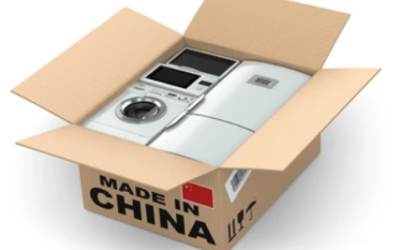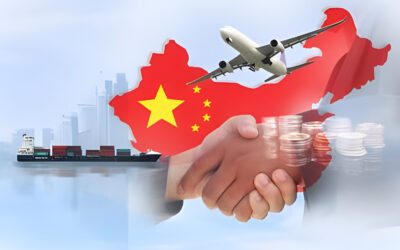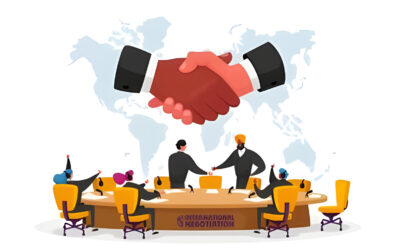Guide to working with a sourcing agent in China for startups

Introduction
Have you ever thought about how startups manage to get their products sourced from China without a hitch? The secret often lies in working with a skilled sourcing agent. This guide will walk you through everything you need to know about working with a sourcing agent in China, from finding the right one to maximizing your business potential.
Starting a business can be overwhelming, especially when it involves international dealings. For many startups, the prospect of sourcing products from China can seem like a monumental task fraught with challenges and uncertainties. The logistics, cultural differences, and the sheer distance can make the process seem insurmountable. This is where sourcing agents come into play. These professionals can bridge the gap between your startup and Chinese manufacturers, ensuring a smooth and efficient process. This guide aims to demystify the role of sourcing agents and provide a comprehensive roadmap for startups looking to capitalize on the benefits of sourcing products from China.
- What is a Sourcing Agent?
- Benefits of Using a Sourcing Agent
- How to Find a Reliable Sourcing Agent
- Questions to Ask Potential Sourcing Agents
- Evaluating Your Sourcing Agent
- Costs Involved with Sourcing Agents
- How to Communicate Effectively
- Understanding the Chinese Market
- Legal and Ethical Considerations
- Managing Logistics and Shipping
- Common Pitfalls to Avoid
- Conclusion
- FAQs
What is a Sourcing Agent?
A sourcing agent acts as a middleman between you and manufacturers in China. They help you find the right products, negotiate prices, and manage the logistics of getting your products shipped to you. Think of them as your business partner on the ground in China, ensuring everything runs smoothly.
Sourcing agents are invaluable assets for startups looking to procure products from China. These professionals have in-depth knowledge of the local market and can navigate it with ease, something that can be quite challenging for foreign businesses. They perform a range of tasks, from identifying reliable manufacturers to negotiating favorable terms and overseeing the entire production process. By leveraging their expertise, you can avoid common pitfalls and ensure that your products meet quality standards and are delivered on time. Essentially, a sourcing agent serves as your eyes and ears on the ground, handling the complexities of the Chinese market on your behalf.
Benefits of Using a Sourcing Agent
Why should you consider using a sourcing agent? Here are some key benefits:
- Expertise and Local Knowledge: Sourcing agents have a deep understanding of the local market and can navigate it more effectively.
- Time-Saving: They handle the legwork, allowing you to focus on other aspects of your business.
- Cost Efficiency: They can negotiate better prices and terms with suppliers.
- Quality Control: Sourcing agents often conduct factory audits and quality checks to ensure product standards.
Using a sourcing agent comes with a multitude of benefits that can significantly impact your startup’s success. Firstly, sourcing agents bring a wealth of expertise and local knowledge to the table. They understand the intricacies of the Chinese market, including regional manufacturing strengths and weaknesses, local business practices, and potential risks. This expertise allows them to navigate the market more effectively than someone who is unfamiliar with it. Secondly, sourcing agents save you a considerable amount of time. They take on the task of finding manufacturers, negotiating deals, and managing the logistics, freeing you up to focus on other critical areas of your business. Thirdly, sourcing agents can often secure better pricing and terms due to their established relationships and bargaining power with suppliers. Lastly, they ensure quality control by conducting factory audits and inspections, which helps in maintaining the standard of your products and preventing costly mistakes.
How to Find a Reliable Sourcing Agent
Finding a reliable sourcing agent can feel like searching for a needle in a haystack. Here are some tips to help you:
- Referrals and Recommendations: Ask other business owners for recommendations.
- Online Platforms: Use websites like Alibaba or Global Sources to find sourcing agents.
- Industry Forums and Groups: Join online forums and groups where you can connect with experienced agents.
Finding a trustworthy sourcing agent is crucial for the success of your business venture. Start by seeking referrals and recommendations from other entrepreneurs and business owners who have experience with sourcing products from China. Personal endorsements can be incredibly valuable as they come from firsthand experiences. Additionally, online platforms such as Alibaba, Global Sources, and Made-in-China are excellent resources for finding sourcing agents. These websites often feature reviews and ratings from other users, which can help you gauge the reliability of the agents. Another effective strategy is to participate in industry forums and online groups dedicated to international trade and sourcing. These communities are rich with experienced professionals who can offer advice, share their experiences, and even recommend reputable sourcing agents.
Questions to Ask Potential Sourcing Agents
Before you hire a sourcing agent, ask them the following questions to ensure they are the right fit for your business:
- How long have you been in the sourcing business?
- Can you provide references from other clients?
- What are your fees and payment terms?
- How do you handle quality control and inspections?
- Do you have experience sourcing the type of products I need?
When interviewing potential sourcing agents, it’s essential to ask the right questions to ensure they align with your business needs and standards. Start by inquiring about their experience in the sourcing business. The length of time they have been operating can give you insights into their expertise and reliability. Ask for references from previous or current clients to get a better understanding of their track record and client satisfaction. Clarify their fees and payment terms upfront to avoid any surprises later on. Understanding how they handle quality control and inspections is crucial as this directly impacts the quality of your products. Finally, make sure they have specific experience in sourcing the type of products you need. This ensures they have the necessary knowledge and connections to find the best suppliers for your business.
Evaluating Your Sourcing Agent
Once you’ve shortlisted potential agents, it’s crucial to evaluate them thoroughly. Here’s how:
- Check References: Speak to other clients about their experiences.
- Trial Period: Start with a small order to test their services.
- Clear Communication: Ensure they understand your needs and communicate clearly.
- Transparency: They should be upfront about costs and processes.
After shortlisting potential sourcing agents, the next step is a thorough evaluation to ensure you choose the best one for your startup. Begin by checking references and speaking directly with other clients who have worked with the agent. Their feedback can provide valuable insights into the agent’s reliability, communication skills, and efficiency. Consider starting with a small trial order to test the agent’s services. This allows you to evaluate their performance, attention to detail, and ability to meet deadlines without committing to a large order. Effective communication is vital in this partnership. Ensure that the agent understands your product specifications, quality standards, and timelines. They should also be transparent about all costs and processes involved in the sourcing and manufacturing stages. Transparency and clear communication will help build a strong, trustworthy relationship with your sourcing agent.
Costs Involved with Sourcing Agents
Understanding the costs associated with hiring a sourcing agent is essential. These can include:
- Commission Fees: A percentage of the order value.
- Flat Fees: A fixed fee for their services.
- Additional Costs: Travel, inspection, and communication fees.
Hiring a sourcing agent involves various costs that startups need to budget for. Commission fees are typically a percentage of the total order value and can vary depending on the agent and the complexity of the sourcing process. Some agents charge flat fees for their services, providing a clear and straightforward pricing structure. It’s important to discuss and understand these fees upfront to avoid any financial surprises. In addition to these primary costs, there may be additional expenses such as travel costs if the agent needs to visit factories or suppliers, inspection fees for quality control checks, and communication costs for coordinating with suppliers and shipping companies. Being aware of these potential costs will help you plan your budget more effectively and ensure a smooth sourcing process.
How to Communicate Effectively
Effective communication with your sourcing agent is key to a successful partnership. Here are some tips:
- Clear Instructions: Provide detailed product specifications and requirements.
- Regular Updates: Stay in touch frequently for updates on the sourcing process.
- Cultural Sensitivity: Be aware of cultural differences and practice patience and respect.
Effective communication is the cornerstone of a successful partnership with your sourcing agent. Start by providing clear and detailed instructions regarding your product specifications and requirements. This includes material specifications, dimensions, color, packaging, and any other relevant details. Clear instructions help prevent misunderstandings and ensure that the products meet your standards. Regular updates are also crucial. Stay in frequent contact with your agent to receive updates on the sourcing process, production timelines, and any potential issues that may arise. This keeps you informed and allows for timely decision-making. Additionally, be culturally sensitive when communicating with your agent. Understanding and respecting cultural differences can help build a stronger, more respectful relationship. Practicing patience and maintaining a respectful tone in all communications can go a long way in fostering a positive and productive partnership.
Understanding the Chinese Market
Navigating the Chinese market can be complex. Here are some things to keep in mind:
- Market Dynamics: Understanding the supply chain and market trends.
- Cultural Nuances: Building relationships based on trust and mutual respect.
- Regulations and Standards: Knowing the local laws and product standards.
The Chinese market presents a unique set of challenges and opportunities that require careful navigation. Understanding the market dynamics is essential. This includes knowledge of the supply chain, manufacturing capabilities, and current market trends that could affect your sourcing strategy. Building relationships in China often relies heavily on trust and mutual respect, known as “guanxi.” Establishing and maintaining good relationships with your sourcing agent and suppliers can lead to better deals and smoother operations. Additionally, being aware of the regulations and standards in China is crucial. This includes compliance with local laws, environmental regulations, and product standards that could impact your ability to import and sell your products. Staying informed about these factors will help you navigate the market more effectively and avoid potential pitfalls.
Legal and Ethical Considerations
Working with a sourcing agent in China requires awareness of legal and ethical considerations:
- Contracts: Ensure all agreements are in writing and legally binding.
- Intellectual Property: Protect your designs and products from being copied.
- Ethical Sourcing: Choose suppliers who adhere to fair labor practices.
Legal and ethical considerations are critical when working with a sourcing agent in China. Start by ensuring that all agreements are in writing and legally binding. This includes contracts that outline the terms and conditions of your partnership, payment terms, and expectations regarding quality and delivery timelines. Protecting your intellectual property (IP) is also essential. Make sure you have measures in place to safeguard your designs, trademarks, and patents from being copied or infringed upon. This might include registering your IP in China and including IP protection clauses in your contracts. Additionally, prioritize ethical sourcing by choosing suppliers who adhere to fair labor practices and environmental standards. Ensuring that your products are sourced ethically can help build a positive reputation for your startup and avoid potential legal and ethical issues down the line.
Managing Logistics and Shipping
Managing logistics and shipping from China can be challenging. Here’s how a sourcing agent can help:
- Shipping Methods: Choosing the best shipping method for your products.
- Customs Clearance: Handling paperwork and ensuring compliance with regulations.
- Tracking and Delivery: Monitoring shipments to ensure timely delivery.
Logistics and shipping are critical components of the sourcing process that require careful management. A sourcing agent can provide valuable assistance in several ways. Firstly, they can help you choose the best shipping method for your products, whether it’s air freight, sea freight, or a combination of both. The choice depends on factors such as the nature of your products, delivery timelines, and budget. Handling customs clearance is another area where a sourcing agent can be invaluable. They can manage the necessary paperwork and ensure compliance with all relevant regulations, helping to prevent delays and additional costs. Finally, a good sourcing agent will monitor your shipments and keep you updated on their status, ensuring that your products are delivered on time and in good condition. Effective management of logistics and shipping can significantly impact your startup’s efficiency and customer satisfaction.

Common Pitfalls to Avoid
Avoiding common pitfalls can save your startup from costly mistakes. Here are a few:
- Choosing the Cheapest Option: Cheapest isn’t always best; consider quality and reliability.
- Ignoring Cultural Differences: Misunderstandings can lead to delays and errors.
- Lack of Clear Contracts: Always have detailed contracts to avoid disputes.
There are several common pitfalls that startups should be aware of when working with a sourcing agent in China. One major mistake is choosing the cheapest option without considering the quality and reliability of the supplier. While it’s important to stay within budget, compromising on quality can lead to significant problems down the line, such as defective products and dissatisfied customers. Another common pitfall is ignoring cultural differences. Misunderstandings arising from cultural nuances can lead to delays, errors, and strained relationships with your suppliers. Taking the time to understand and respect cultural differences can help avoid these issues. Lastly, operating without clear and detailed contracts is a major risk. Contracts should outline all terms and conditions, including payment terms, quality standards, delivery timelines, and procedures for handling disputes. Having detailed contracts in place can help prevent misunderstandings and provide a clear framework for resolving any issues that arise.
Conclusion
Working with a sourcing agent in China can be a game-changer for your startup. By leveraging their expertise, you can streamline your sourcing process, reduce costs, and focus on growing your business. Remember, the key to a successful partnership is finding a reliable agent, communicating effectively, and being aware of the legal and ethical considerations.
In conclusion, collaborating with a sourcing agent in China can significantly enhance your startup’s ability to procure high-quality products efficiently and cost-effectively. The expertise and local knowledge that sourcing agents bring to the table can help you navigate the complexities of the Chinese market, negotiate better deals, and ensure consistent product quality. Effective communication and clear contractual agreements are crucial to building a strong partnership with your sourcing agent. Additionally, being mindful of legal and ethical considerations will help protect your business and maintain a positive reputation. By following the guidelines outlined in this guide, you can maximize the benefits of working with a sourcing agent and position your startup for long-term success.
FAQs
What is a sourcing agent?
A sourcing agent is a professional who helps businesses find and manage suppliers in China, ensuring products meet quality standards and are delivered on time.
How do I find a reliable sourcing agent?
You can find reliable sourcing agents through referrals, online platforms like Alibaba, and industry forums. It’s essential to evaluate them thoroughly before hiring.
What are the benefits of using a sourcing agent?
The benefits include saving time and money, accessing local market knowledge, and ensuring product quality through factory audits and inspections.
What should I ask a potential sourcing agent?
Ask about their experience, references, fees, quality control processes, and their understanding of your product needs.
What costs are involved in hiring a sourcing agent?
Costs can include commission fees, flat fees, and additional expenses like travel and inspection fees. Always clarify these costs upfront.
Recent Posts
- Budget-Friendly Imports: Strategies for Cost Control When Importing Goods From China
- Bridging Cultures: Navigating Cultural Aspects in China Imports
- Guide to working with a sourcing agent in China for startups
- How China Sourcing Agents Can Transform Your Business
- Exploring the Benefits of Collaborating with a China Sourcing Agent







Recent Comments